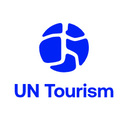Observatories Guiding Shift Towards More Sustainable and Resilient Tourism
Destinations around the world are reporting significant advances in sustainable tourism, with timely evidence and analytics serving as key tools for transformation as the sector’s recovery continues to get underway.



Meeting in Madrid, the World Tourism Organization’s (UNWTO) International Network of Sustainable Tourism Observatories (INSTO) welcomed insights from more than 150 experts, with a focus on key topics including the shift towards a circular economy and reducing food waste across the sector. The global network of INSTO Observatories is pioneering and implementing, very often for the first time, catalytic activities designed to help the tourism sector implement sustainable development at the destination level. Together, they are leading the transformation of tourism by building on the principles of participatory approaches including all stakeholders to ensure an inclusive and resilient tourism development.
UNWTO Secretary- General Zurab Pololikashvili said: “To ensure the sustainable transformation of the tourism sector, its development must be seen as a means to achieve the overall prosperity of a local community and the surrounding environment rather than a goal in itself. The Observatories are an excellent tool for guiding and accompany this change and ensure evidence-based decision- making.”
Sustainable production and consumption
At the Global INSTO Meeting, destinations focussed on how a timely and evidence-based approach is helping stimulate circular economy processes that result in using resources such as water and energy more efficiently. In addition, challenges in the environmental and social dimensions and the need for indicators that allow for comparability among destinations were highlighted.
Another topic was the availability of data from a growing variety of data-sources, making it increasingly difficult to process them into useful information needed for an informed decision- and policy- making process. It was agreed that all of these issues will be addressed in the INSTO Network through webinars and technical discussions.
Network keeps growing
Within the framework of the meeting, the Center of Tourism Economics of the State of Sao Paolo in Brazil and the Biscay Tourism Intelligence System in Spain were officially welcomed as new members of the Network. Both destinations have based their commitment to sustainable tourism development on participatory approaches, evidence generation and transparency, all three important requirements for membership.
The meeting was also an opportunity to introduce the five members who have joined since 2021: Mallorca, Barcelona and Málaga from Spain, the Yukon from Canada and Bogotá in Colombia.
RELATED LINKS
- UNWTO INSTO Network
- 2022 Global INSTO Meeting
- INSTO Tools and Resources
- Measuring the Sustainability of Tourism (MST) Initiative
- One Planet Sustainable Tourism Programme
- Bizkaia Sustainable Tourism Observatory
- Sao Paolo Sustainable Tourism Observatory
About UN Tourism
The World Tourism Organization (UN Tourism) is the United Nations agency responsible for the promotion of responsible, sustainable and universally accessible tourism.
As the leading international organization in the field of tourism, UN Tourism promotes tourism as a driver of economic growth, inclusive development and environmental sustainability and offers leadership and support to the sector in advancing knowledge and tourism policies worldwide.
Our Priorities
Mainstreaming tourism in the global agenda: Advocating the value of tourism as a driver of socio-economic growth and development, its inclusion as a priority in national and international policies and the need to create a level playing field for the sector to develop and prosper.
Promoting sustainable tourism development: Supporting sustainable tourism policies and practices: policies which make optimal use of environmental resources, respect the socio-cultural authenticity of host communities and provide socio-economic benefits for all.
Fostering knowledge, education and capacity building: Supporting countries to assess and address their needs in education and training, as well as providing networks for knowledge creation and exchange.
Improving tourism competitiveness: Improving UN Tourism Members' competitiveness through knowledge creation and exchange, human resources development and the promotion of excellence in areas such as policy planning, statistics and market trends, sustainable tourism development, marketing and promotion, product development and risk and crisis management.
Advancing tourism's contribution to poverty reduction and development: Maximizing the contribution of tourism to poverty reduction and achieving the SDGs by making tourism work as a tool for development and promoting the inclusion of tourism in the development agenda.
Building partnerships: Engaging with the private sector, regional and local tourism organizations, academia and research institutions, civil society and the UN system to build a more sustainable, responsible and competitive tourism sector.
Our Structure
Members: An intergovernmental organization, UN Tourism has 160 Member States, 6 Associate Members, 2 Observers and over 500 Affiliate Members.
Organs: The General Assembly is the supreme organ of the Organization. The Executive Council take all measures, in consultation with the Secretary-General, for the implementation of the decisions and recommendations of the General Assembly and reports to the Assembly.
Secretariat: UN Tourism headquarters are based in Madrid, Spain. The Secretariat is led by the Secretary-General and organized into departments covering issues such as sustainability, education, tourism trends and marketing, sustainable development, statistics and the Tourism Satellite Account (TSA), destination management, ethics and risk and crisis management. The Technical Cooperation and Silk Road Department carries out development projects in over 100 countries worldwide, while the Regional Departments for Africa, the Americas, Asia and the Pacific, Europe and the Middle East serve as the link between UN Tourism and its 160 Member States. The Affiliate Members Department represents UN Tourism's 500 plus Affiliate members.
UN Tourism Communications Department
+34 91 567 8100
UN Tourism
